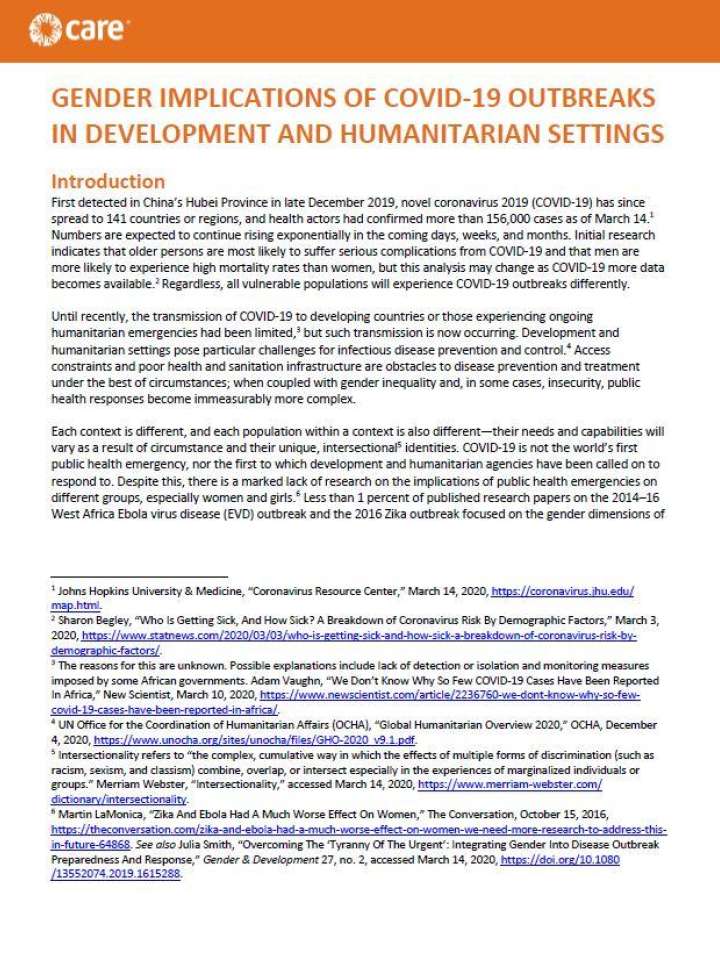Gender implications of COVID-19 outbreaks in development and humanitarian settings
Informed by lessons learned from past public health emergencies, CARE’s analysis shows that coronavirus disease 2019 (COVID-19) outbreaks in development or humanitarian contexts could disproportionately affect women and girls in a number of ways, including adverse effects on their education, food security and nutrition, health, livelihoods, and protection.
The recommendations provided in this report, on how to promote gender equality, are (pp. 8-9):
- Devote more resources toward researching the gendered implications of public health emergencies, especially disease outbreaks, so that public health preparedness and response plans can mitigate harm to women, girls, and other vulnerable groups;
- Work with local communities, particularly women’s groups, before, during, and after public health emergencies to ensure continued trust, access, and to provide the best possible services;
- Ensure that emergency preparedness and response plans are grounded in sound gender analyses, considering gendered roles, risks, responsibilities, and social norms, and accounting for the unique capabilities and needs of other vulnerable populations.
Explore further

